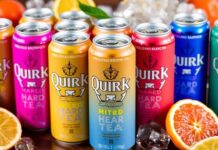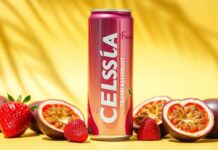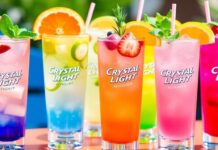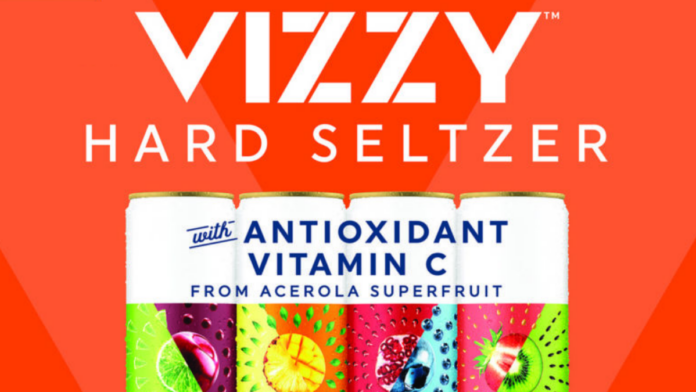Molson Coors is facing a class action lawsuit surrounding its popular hard seltzer brand, Vizzy. The class action alleges the beverage alcohol giant’s marketing campaign for Vizzy is “misleading and dangerous to consumers.”
According to documents filed in the U.S. District Court for Northern California last Thursday, complainant Jennifer Marek of Menlo Park, CA. argues that Molson Coors fortifies Vizzy with “an insignificant amount of Vitamin C, and then blanketed the labels and advertising with statements affirmatively promoting antioxidant Vitamin C from a ‘superfruit.’”
The ‘superfruit’ described in court filings is the acerola cherry. Vizzy’s marketing campaign leans heavily on health-conscious focused claims stemming from the addition of acerola cherry juice in its beverages. The brand’s packaging and advertising boasts that Vizzy is the “first Hard Seltzer Made with Antioxidant Vitamin C from Acerola Superfruit.’ The fruit, which is also known as a Barbados cherry, is rich in vitamin C and, according to some experts, could be utilized as an antioxidant, or a free radical fighting compound.
However, the lawsuit suggests that any health benefits from the cherries are outweighed by the risks associated with alcohol consumption. “Intending to profit from consumers’ increasing desire to consume healthy food and drink, (Molson Coors Beverage) fortified its alcoholic beverage by sprinkling nutrients into a beverage that is lawfully required to disclose harmful health effects. Of course, adding an insignificant amount of nutrients to an alcoholic beverage will do little to overcome the harmful effects of alcohol.”
In the US, alcohol is responsible for upwards of 95,000 deaths every year, according to data from the Center for Disease Control and Prevention. Lawsuit documents cited the startling fact, alleging that Molson Coors “attempt[ed] to overcome the deleterious health impact of its (products), [by adding] Vitamin C.” Marek is seeking unspecified damages from the alcohol company, claiming its Vizzy campaign is “unlawful.”
Molson Coors launched Vizzy Hard Seltzer in April of last year, during the height of the pandemic and while the hard seltzer market was experiencing an unprecedented surge in sales. In a press release announcing the launch Elizabeth Hitch, Director of Hard Seltzers for Molson Coors, stated, “We created Vizzy to have all of the things the other hard seltzers have but with a meaningful addition that drinkers actually care about, antioxidant vitamin C.”
Since its debut, Vizzy has performed impressively for Molson Coors, even helping the beverage company enjoy “its best quarterly top-line growth in more than a decade” during its most recent Q2. The brand currently produces two variety packs featuring several fruit-forward flavor combinations as well as both a Lemonade and Watermelon variety pack.
This is not the first time Vizzy’s health claims have garnered scrutiny. In March of this year two consumer advocacy groups partnered to share their concerns about the bubbly beverage’s health claims with the Food and Drug Administration (FDA) via a co-written letter.
According to the letter, the Consumer Federation of America along with the Center for Science in the Public Interest (CSPI) insist, “Claims such as ‘made with antioxidant vitamin C’ convey healthfulness and are misleading on alcoholic beverages given their empty calories, association with serious health conditions, and anti-nutrient properties.” The consumer advocacy groups expressed concern that “such claims may mislead consumers to believe alcoholic beverages are healthful sources of nutrients.”
Hard Seltzer News reached out to Molson Coors for a comment back in March. The company’s Manager of Media Relations, Marty Maloney, replied, “While antioxidant Vitamin C is part of what makes Vizzy stand out, we have always been committed to communicating this product attribute responsibly.”
- Seltzer Category Expanded for 2022 Craft Beer Marketing Awards - February 11, 2022
- Drifter Expands Portfolio with Nordic-Style Gin - January 18, 2022
- Tilray Acquires Green Flash and Alpine Beer - December 22, 2021














